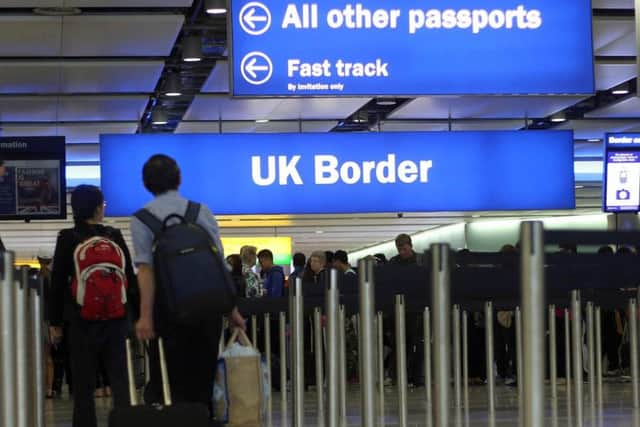Vast majority of EU citizens in Scotland yet to apply for settled status
With the country now less than three months away from a possible no deal Brexit, residents without Settled Status face uncertainty if travelling to and from the UK.
Around 230,000 EU citizens live in Scotland, but the most recent UK Government figures indicate that just 51,600 applications have been received from north of the Border. Across the UK, only around one-third of EU citizens have completed the process.
Advertisement
Hide AdAdvertisement
Hide AdCampaigners have criticised the Settled Status scheme as being unnecessarily awkward for applicants. But the Home Office insisted support was on offer to help those who wanted to apply.


Under the scheme set out by the Home Office, EU citizens and their families need to prove their identity, show that they live in the UK, and declare any criminal convictions as part of applying.
EU citizens and their families have until at least December 2020 to apply - but that could be extended to June 30, 2021 if a deal is reached.
The UK Government announced this week that freedom of movement will end on October 31, with Downing Street claiming the system allowing EU citizens to freely live and work in the UK would “look different”.
A Downing Street spokeswoman insisted that EU citizens currently resident in the UK would not be prevented from re-entering the country after trips abroad, but it remains unclear how border checks would be carried out.
A spokesman for The 3 Million, a campaign group which lobbies on behalf of EU citizens in the UK, told The Scotsman that “millions are yet to apply for Settled Status”.
They added: “There is lack of certainty about their exact number. This is because national population statistics do not include some groups of EU citizens, or their non-EU family members.
“There are also issues with accessibility of the Settled System system itself, such as the need to use an Android phone. There is also insufficient support for applicants, especially in certain areas of the country, and in certain community languages.
Advertisement
Hide AdAdvertisement
Hide Ad“Finally, many citizens are confused by the UK Government’s mixed messaging on the issue, which only last Sunday veered away from guarantees of rights to the threat of removing them overnight.”
The Scottish Government’s migration minister, Ben Macpherson, told The Scotsman that the UK Government should introduce primary legislation “as soon as possible” to set out the rights of EU citizens who are resident in the UK when Brexit takes place.
He added: “Citizens from elsewhere in the EU significantly enrich our society and make a huge contribution to Scotland’s economy and providing public services. They are our friends, neighbours and colleagues and we really want them to stay - that is why the Scottish Government launched our ‘Stay in Scotland’ campaign earlier this year.
“While we have concerns about elements of the UK Government’s EU Settlement Scheme, we want to ensure that people remain in Scotland and are supported when applying for Settled Status.
“The Scottish Government has consistently argued that, in place of their EU Settlement Scheme, the UK Government should instead adopt a declaratory system, which would avoid the need for people to make applications and remove the threat of refusal except in the most extreme circumstances.
“We have also urged the UK Government to offer the option of physical proof of Settled Status. Such measures would provide welcome assurances to EU citizens in our communities and we remain in constant contact with the UK Government about these issues.”
A Home Office spokesman said: “We are pleased that more than 50,000 people in Scotland have applied to the EU Settlement Scheme in the first few months of the Scheme opening. EU citizens and their families have until at least December 2020 to apply.
“There’s lots of support available by phone, email and in person, and we’re taking a digital approach to proving status because physical documents can be lost, stolen or tampered with.”